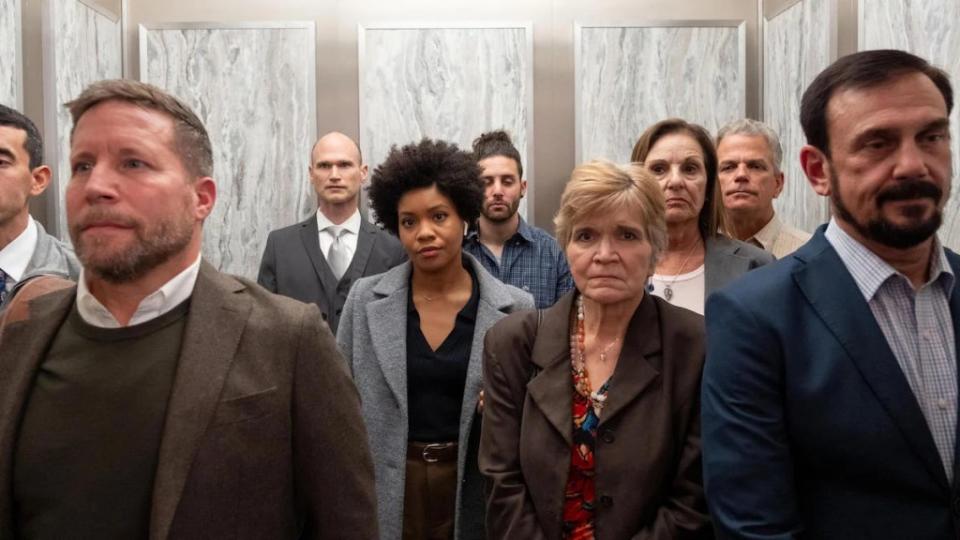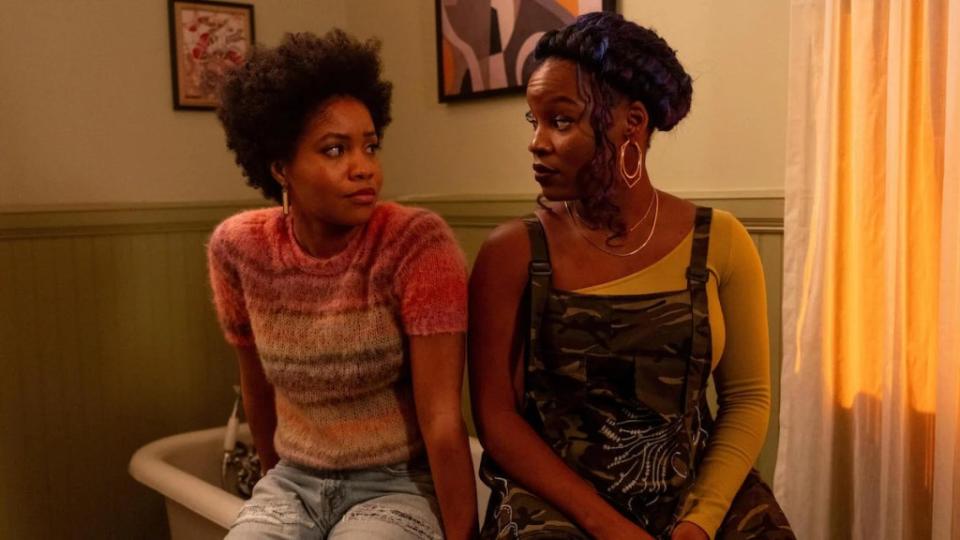‘The Other Black Girl’ Review: Hulu Presents a Genre-Defying Drama That Provokes and Entertains
“The Other Black Girl” is a rarity for Black women in scripted television. The latest series from Onyx Collective to premiere on Hulu, this psychological thriller and satire tinged with horror offers a rare and provocative look into the challenges facing Black women within the larger white society, while also exploring their internal tensions through a mainstream premise.
Adapted from the 2021 book of the same name from Zakiya Dalila Harris, the show centers two Black women working in book publishing, widely acknowledged as one of the least diverse industries in the country. Nella Rogers (Sinclair Daniel) is a promising young employee at Wagner Books, with eyes on becoming an impactful editor like her idol Kendra Rae Phillips, the publisher’s first and only Black editor to date, did back in the early 1980s. Being the only Black woman at the company can be isolating, so it’s only natural that Nella is elated when Hazel-May McCall (Ashleigh Murray) joins the team.
Each woman’s affinity for Wagner stems from their love of the publisher’s groundbreaking bestselling Black novel, “Burning Heart,” written by Diana Gordon and edited by her childhood best friend Phillips. They both credit the book for transforming their lives by broadening their outlook on life and inspiring them to pursue publishing as a career. Nella grew up in a predominantly white environment in Connecticut, while the slightly more mysterious Hazel hails from Boston. On the surface, Hazel, with her perfectly maintained locks, presents as far more “Black Card” official as a graduate of the D.C.-based Howard University than the afro-rocking Nella, a University of Virginia alum. Hazel also lives in Harlem while Nella lives further out of the city with her white boyfriend Owen (Hunter Parrish) whom she met at UVA.

At work, Nella’s demanding boss Vera Parini (Bellamy Young) oscillates in the murky space of both championing and limiting her. All comes to a head when Nella, encouraged by Hazel, speaks up about a troubling stereotypical character in the latest book from Wagner’s most successful author who is, of course, clueless to his own implicit bias. But her candor puts Nella at odds with her white bosses and co-workers, forcing her to compromise her integrity and impacting her blossoming friendship with Hazel.
While Nella’s own childhood best friend Malaika (Brittany Adebumola), a beauty professional who did not attend college, is suspicious of Hazel from the start, it’s hard to determine whether her suspicions are justified or merely fear of Hazel replacing her in Nella’s life. The fact that Hazel pushes Nella to want more, and even supports her in pursuing the editor position that should have been hers already makes her motives more confusing. But Malaika’s questions, matched by disturbing behavior from Hazel herself and other red flags make it increasingly difficult for Nella to ignore that Hazel is not who she appears to be.
Over the ten hourlong episodes, “The Other Black Girl” covers much ground. Flashing back to the 1980s and present-day, race plays a dynamic role in the overall narrative. But so does class and friendship. Powerful parallels and contrasts are drawn between the past and present. As Nella grows more confident, troubling events begin to ensue in and out of the workplace. Before Nella knows it, she’s swept up into a maniacal plot to subdue Black women, making them less threatening to white society, with hair grease playing a curious role.
Oftentimes it is true that a book is better than its TV show or movie adaptation, but that is not the case here. Working with Rashida Jones, Harris and the writers room strike a more subtle tone than its source material, leaning into an ambiguity that invites viewers into Nella and Hazel’s interior worlds. Replacing the heavy-handedness of the book to soften themes of race, identity, class, upward mobility, as well as questions around individual and collective responsibility creates a more inclusive conversation that should captivate all viewers. The stellar performances from the two stars at the center of “The Other Black Girl” are critical in achieving that effect and impact.
Relative newcomer Daniel and Murray of “Riverdale” fame sizzle in their roles as leading women, playing off each other very well. Murray is both warm enough to be trusted and cold enough to keep viewers guessing. As the series delves deeper into Hazel’s backstory, Murray infuses the dubious young woman with a vulnerability that complicates how we feel about her. Daniel also strikes the right chord between na?veté and gullibility before flipping the script to become cunning and calculating.

As Malaika, Adebumola (“The 4400” and “Grand Army”) side-eyes Hazel in a manner that ensures viewers never let their guard down. “Scandal” breakout Bellamy Young embodies the clueless but well-meaning white mentor as Vera, who is both cringey but well-intentioned. “Will and Grace” favorite Eric McCormack plays very much against type as privileged, charming boss Richard Wagner who also has a sinister side. Plus, Garcelle Beauvais, who recently popped up in the Netflix comedy “Survival of the Thickest,” makes an effective appearance that moves the story forward in surprising fashion.
“The Other Black Girl” is far from perfect, with some episodes lagging more than others and certain plotlines that teeter toward the ridiculous. But, even with its flaws, the show is a highly watchable journey that digs deep into the racial complexities of our society in a similar vein to Jordan Peele’s “Get Out,” but that feels as warm and witty as shows like “Insecure” with an added layer of mystery and racial sabotage on the menu.
Onyx Collective’s mission is to create engaging and captivating diverse programming and, with “The Other Black Girl,” it certainly soars far more than it falters.
“The Other Black Girl” premieres Wednesday, Sept. 13, on Hulu.
The post ‘The Other Black Girl’ Review: Hulu Presents a Genre-Defying Drama That Provokes and Entertains appeared first on TheWrap.
